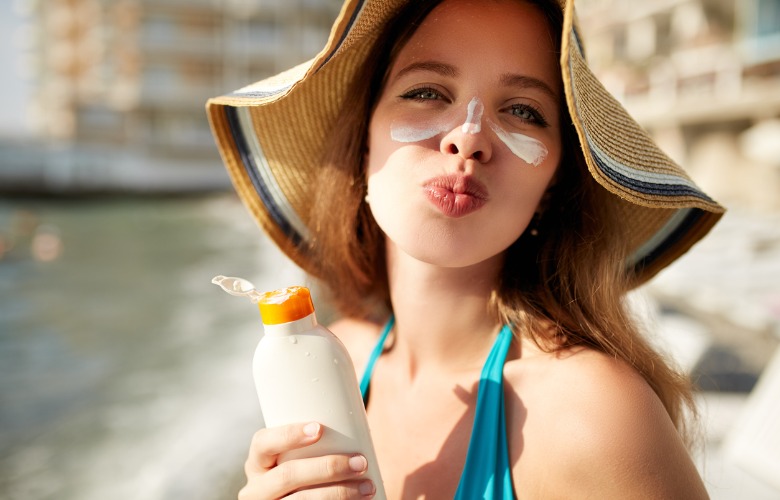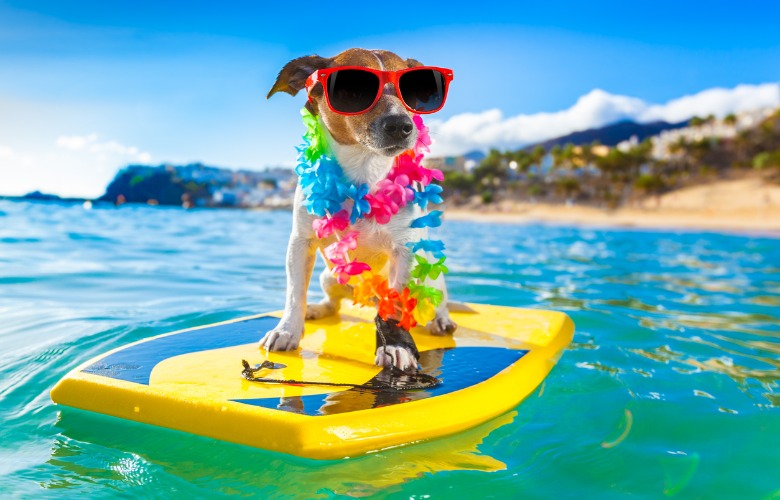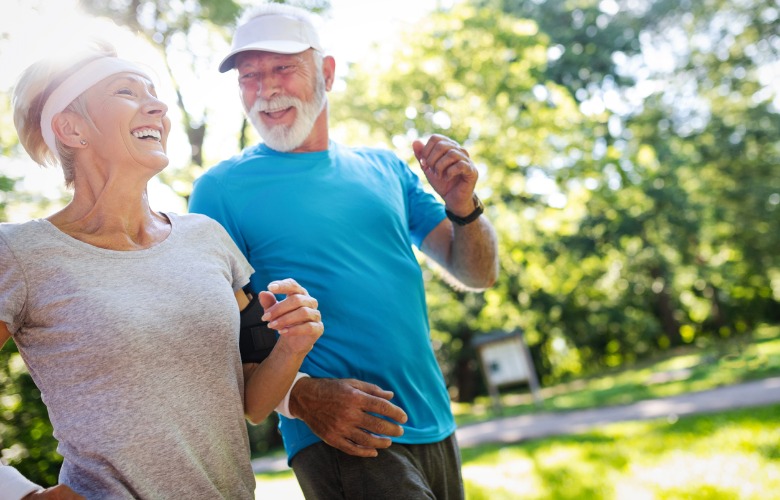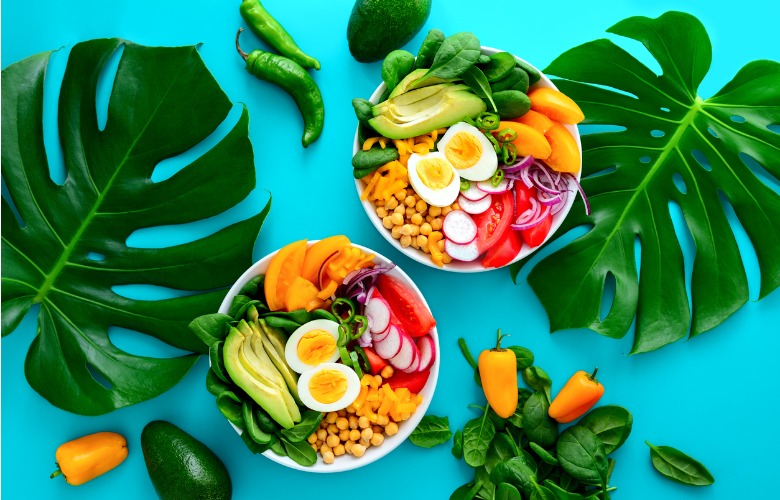Healthy Summer Vibes
Posted by Jemile Nesimi Hobson, B.A on Oct 11, 2024
Now more than ever we are ready for summer. Lazier days with our families, fun in the sun, and time to take a break from our busy lives. Make those summer vibes healthier with these easy tips for summer safety, pet safety, travel safety, summer fitness, and foods that scream summer health.
Summer Safety

Sunscreen
Using a good sunscreen that protects our skin from UV rays is crucial to avoiding skin damage. A good sunscreen should have an SPF of 15 or higher, be water-resistant, and provide broad-spectrum protection. Sun protection is the best approach. However, sometimes a sunburn can occur and when it does here are a few tips for dealing with it:
- Take frequent cool baths and showers
- Use a moisturizer that contains aloe vera
- Drink extra water
- Don’t pop blisters if they form, allow them to heal.
Heat rash
Sometimes the heat can get the best of us as sweat ducts get blocked and cause discomfort and itching known as heat rash. This pink or red rash is common in babies, however, can occur in adults, especially when it is hot and humid.
Symptoms of a heat rash include red bumps, blisters, itching, or prickling skin. Heat rash can be caused by immature sweat ducts, overheating, prolonged bed rest, tropical climates, and or intense exercise. Ways to avoid a heat rash are layering lightweight clothes, wear comfortable loose clothing, remain in the shade or air conditioning if it is too hot outside, and keep the place you sleep both cool and well-ventilated.
What happens if you find yourself with a heat rash? Here are some simple steps to take:
- The first step is removing clothing and moving to a cool area.
- Let skin air-dry instead of using towels which can irritate the skin even further.
- Also, avoid using any lotion or ointment on the rash.
Heatstroke
This is a condition when your body overheats because of exposure to prolonged hot temperatures. Symptoms of heatstroke include:
- High body temperature
- Nausea and Vomiting
- Flushed skin
- Racing heart rate
- Altered mental state
- Headache.
If someone is experiencing a heatstroke you should immediately seek emergency medical help and try to cool the person off by moving them indoors, removing excess clothing, or sponging them with cool water.
Heatstroke can be caused by exposure to a hot environment, intense physical activity in hot weather, wearing too much clothing, drinking alcohol, and becoming dehydrated. Risk factors that increase your chances of suffering from heatstroke include age, exertion, sudden exposure to hot weather, some medications, and lack of air conditioning.
You can avoid heatstroke by:
- Drink lots of water
- Wear clothing that is lightweight and comfortable
- Use sunscreen to avoid a sunburn
- Do not sit in a parked car or leave anyone in one
- Avoid the outdoors during the hottest parts of the day
- Adjust your body to the heat by limiting time in the sun and heat until you are acclimated to it

Summer Travel
Food Poisoning
In hotter temperatures, food can spoil and can cause sickness from food-borne illnesses. Some tips to prevent spoiled food include refrigerating perishables within two hours, washing hands before prepping food and handling raw meats, and using a thermometer to check meat temperature. When you do succumb to food poisoning here are some tips for dealing with it:
- Avoid dehydration by sipping water
- Don’t eat solid foods until vomiting has ended
- Eat light bland foods such as crackers as part of your recovery.
Jet Lag
Traveling is fun but can also affect your sleep with jet lag, a common issue when traveling and occurs when the body’s internal clock and circadian rhythm are thrown off balance when traveling across time zones.
Jet lag can cause symptoms such as fatigue, loss of short-term memory, diarrhea, and constipation. Jet lag is a temporary sleep disorder that can occur when traveling over time zones, and this can make it difficult for the body to adjust circadian rhythms and sleep cycles.
Ways to Help Combat Jet Lag While Traveling
There are some simple ways to avoid jet lag:
- Get adequate daylight on arrival, as it is a powerful stimulant to balance the body’s internal clock.
- Avoid alcohol or caffeine at least three hours before sleep.
- Eat vitamin B rich foods such as beets, bananas, strawberries, mung beans, and broccoli.
- Try acupuncture.
- Try a supplement that can support calm, relaxation, and sleep.
- Bring healthy snacks to keep your blood sugar levels steady.
- When traveling with pets never leave them in a hot car, it can take mere minutes before they can reach 160 degrees.
- Indulge a little. Everything in moderation. Denying yourself a sweet treat is going to put a damper on your fun. Just try to get in a healthier breakfast or dinner option when you do.
- Change up your fitness routine. Traveling to a new place is the perfect time to get active doing something new. Take the yoga class at your hotel, go snorkeling, or take a power walk on a hiking trail.
- Unplug. Experience and explore without your device. Be in the moment.

Summer Pet Safety
Our pets love the summer as much as we do, but it is important to keep them safe during the hotter months. Dogs may love to take a swim or hike with us, but they just don't sweat as we do. Cats may love to sprawl under the hot sun, but they need to be looked after in the heat too.
Pets can experience heatstroke quickly since the only way they can cool themselves is by panting. They can also get a sunburn like we do, making it important to limit their exposure to the sun.
Here are a few tips for keeping dogs and cats safe:
- Never leave your pet in a hot car. Cars can heat up to 160 degrees in minutes when under the hot sun.
- Summer is the peak time for ticks, fleas, and mosquitoes. Always check your dog or cat when coming in from outside and talk to your vet about appropriate protection against these parasites.
- Protect their paws. Patios, sidewalks, asphalt, and sand can become too hot for your pet to walk on and their paws could get burned. It may be best to walk your pets in the early morning or late in the evening when the ground is cooler.
- Always give unlimited access to clean, cool water. Dehydration can be dangerous for pets so water should always available both indoors and outdoors. Encourage your pet to drink more by adding ice cubes.
- Fireworks and pets don't mix. Keep them away when festivities involve fireworks. The loud noises and flashes of light can disorient and frighten your pet. There is also a risk of burns and chemical poisoning if they eat them.
- Thunderstorms and travel can cause anxiety. Pets can experience anxiety. The summer months may increase it given the prevalence of storms, travel, and being left alone.

Summer fitness
The summer is the perfect time to take advantage of the outdoors to stay fit. Exercise has been shown to improve mood, boost energy, help control weight, promote better sleep, sharpen memory, reduce stress, support glucose metabolism, strengthen your lungs, and keep your heart healthy.
Here are a few ways you can stay in shape during the summer while having fun doing it:
- Swimming
- Hiking
- Dancing
- Jogging on the beach
- Bike rides
- Tennis match
- Gardening.
Some tips when working out in the summer include drink water consistently and don’t wait until you are thirsty. Wear sunscreen while you work out, if swimming looks for a water-resistant formula. Get active in the earlier morning or evening hours when it isn’t the hottest. Replace your electrolytes which are lost when we sweat. Foods like chocolate milk, bananas, cherry juice, and coconut water can all help to replace electrolytes. Whenever you feel dizzy, nauseous, or faint – stop the activity and listen to your body.

Summer foods
Cucumber
Cucumber is a refreshing and high-water content food and helps to flush toxins from the body.
Lemon
Lemons stimulate the liver and help to restore balance to the body’s pH. Lemons also stimulate bile production and cleanse the kidneys.
Watermelon
Hydration in the heat is extremely important. Being hydrated helps keep your memory sharp; being dehydrated can impact mood. Water isn't the only way to stay cool and refreshed during the summer month. Watermelon is also a great alternative. Not only is watermelon 92% water, but it also contains lycopene and offers the same sunburn protection as tomatoes. Enjoy it right off the rind or try watermelon water.
Avocado
Avocados contain glutathione to detoxify toxins and are a great base for smoothies.
Water
Summer heat can quickly rob your body of hydration – it is important to re-hydrate with lots of water or one of these options if water bores you:
- Water with lemon or lime can help to detox your body
- Coconut water is not only a delicious alternative to water but is the most hydrating juice there is
- Hydrating fruits and vegetables include cantaloupes, watermelon, oranges, cucumbers, celery, and lettuce.











